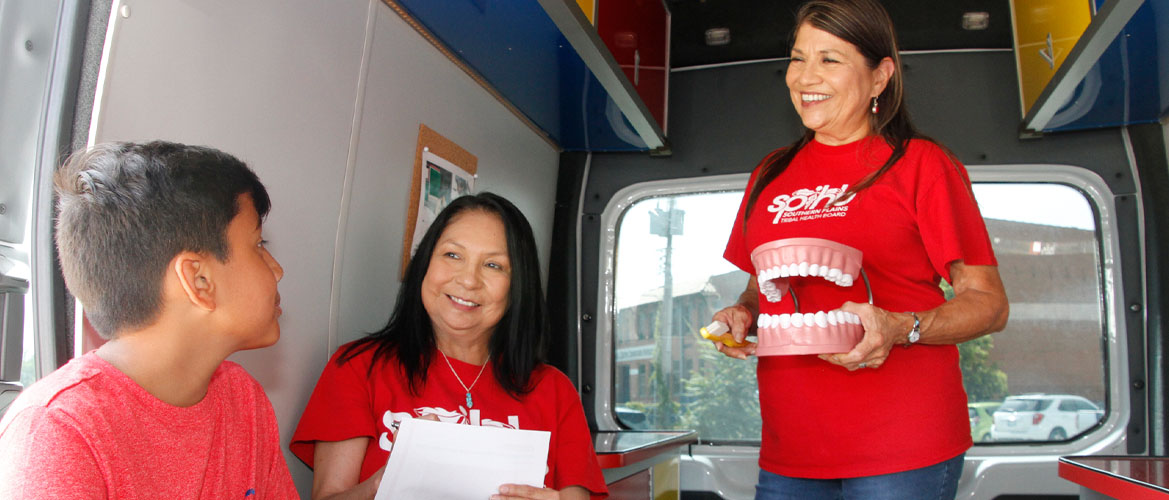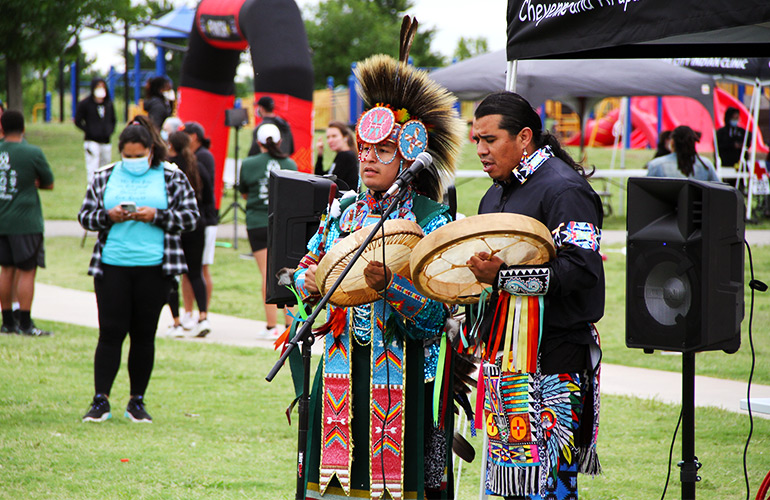In Pottawatomie County, Oklahoma, home of the Citizen Potawatomi Nation, more residents die prematurely and have poorer health outcomes than those living in other counties statewide and across the country.
As a former official for the Oklahoma State Department of Health, Yvonne Myers understands the health disparities tribal members face. On the tribe’s behalf, she works with Blue Cross and Blue Shield of Oklahoma to ensure members get the services needed to improve their quality of life.
For more than a dozen years, the plan has held an annual Tribal Roundtable, inviting representatives of the Indian Health Service and tribal and urban clinics, including Myers, to discuss health care policies, legislation and coverage issues affecting Oklahoma’s Native Americans. Since its 2012 inception, the roundtable has grown to include more than 100 participants from 38 federally recognized tribes to try to improve poor health care outcomes disproportionately affecting their citizens.
Topics may include coverage of maternal, newborn and behavioral health care, services for older people, transportation needs and cost-sharing arrangements through the Affordable Care Act the plan negotiates with tribes to cover their citizens’ surgeries and life-threatening conditions. The plan is the only Oklahoma insurer to arrange such a gathering, and it follows up on the concerns tribes express, participants say.
“There are people walking around today because Blue Cross and Blue Shield been a consistent player in Oklahoma,” says Myers, the ACA and Medicaid consultant for the Citizen Potawatomi Nation Health Services in Shawnee. “Sometimes I don’t get everything I want from the plan, but we try to maximize what we can get for the people who we serve.”
Historically, the federal government has not fully funded Native American health care, leaving significant care gaps the Indian Health Service cannot fill. That’s why indigenous people need insurance to cover medical care they receive outside what the Indian Health Service provides.
Yet, nearly 20% of Native Americans nationwide are uninsured, according to the U.S. Department of Health and Human Services. Meantime, they have lower life expectancy and higher rates of chronic conditions such as diabetes and heart disease.
More than half a million Native Americans live in Oklahoma, with BCBSOK insuring an estimated 77,000.
“Our goal is to improve the health and wellness of all Oklahomans, and Native Americans make up a large part of the state’s population,” says Lucinda Myers, a BCBSOK tribal relations specialist and enrolled citizen of the Muscogee Creek Nation in Oklahoma. (She and Yvonne Myers are not related.) “Tribes took it upon themselves to provide health care to their citizens, and we want to be part of that effort.”
Besides holding the roundtable, BCBSOK's outreach workers travel to tribal communities to attend community events and groundbreakings to build trust and help with health insurance enrollment, education and customer service. The Caring Van® program BCBSOK healps support has partnered with the Chickasaw and Choctaw nations and Southern Plains Tribal Health Board to provide preventive health services.
“We have some really great health initiatives going on across the state,” Lucinda Myers says. “We’re there to support, celebrate them and demonstrate our commitment to serving Oklahoma tribes.”
Discussion can lead to action
As Oklahoma’s indigenous population ages, Robyn Sunday-Allen, CEO of the Oklahoma City Indian Clinic, feels compelled to ensure tribal elders, revered for their leadership and wisdom, receive the services and attention they deserve.
“Elders are the cornerstone of our population,” says Sunday-Allen, who estimates 16% of Oklahoma’s Native American population is at least age 65. “We are doing the very best we can to take care of their behavioral health needs and address their loneliness and isolation. We are making a commitment to serving them.”
She wants to add a gerontology practice to the care provided at her clinic, which serves about 22,000 patients representing over 220 tribes, and looks forward to discussing her vision and other topics at the Tribal Roundtable. Describing the gathering as a Native American policy think tank, Sunday-Allen says participants engage in robust conversations about best practices, as well as issues they face as federal and state health care regulations change.
“There are lots of ideas shared, and the roundtable is always well-attended,” Sunday-Allen says. “Our voices are heard, and we see action on items discussed. It’s a great place for everyone to get together.”


